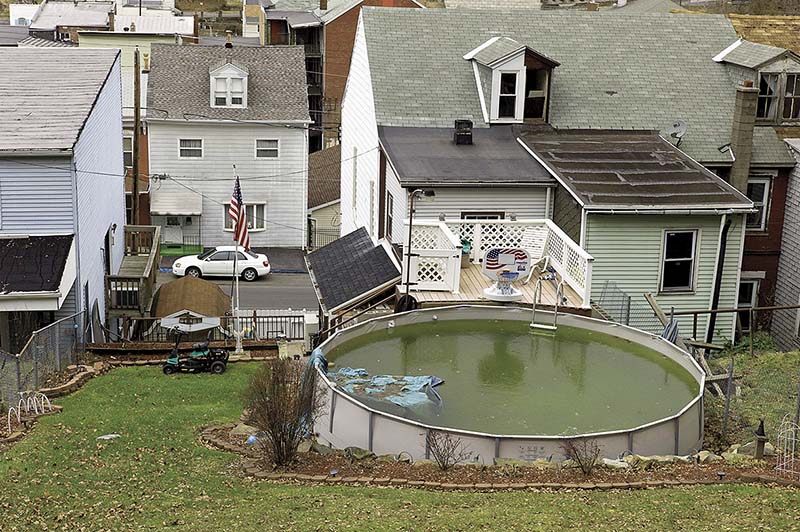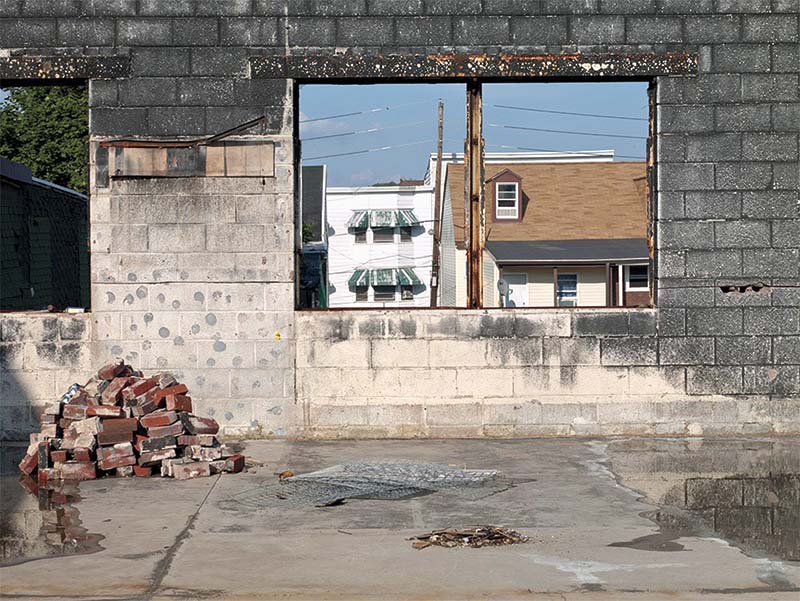
Justin Kimball, professor of art, has traveled around the country photographing small towns brought to the brink of obsolescence by the nation’s economic crisis. He’s now compiled many of those photos into a book, Elegy, published in November. It examines a growing, yet often overlooked, portion of the American landscape. As a photographer, Kimball says, he examines the concept of what it means to be human in the world today, and in his teaching, he encourages students to do the same.
Where only dollar stores remain
Kimball began the Elegy project in 2012. “It was right around the last presidential election,” he recalls, “and I remember listening to the news as I was driving through these places where there’s no real economy left—where the only things left are bars, dollar stores and pizza joints—and I realized there was little to no national discussion of how these people are really living. Economically speaking, they’re struggling. And so I just started photographing.”
A specifically American struggle
“While the book itself is sort of political, because it can’t help but be, it’s really meant to be a series about struggle in a broad sense, and what it means to be a person living in today’s world,” Kimball says. The photos “look at how we as humans in these kinds of situations, and maybe specifically Americans, persevere.”

Why non-art majors study art
Many take art courses to find their voice, Kimball says. “Art can change the way you perceive not only the world around you, but also yourself. There’s a lot of room in a photography class to have conversations about identity, which is something students at Amherst have always been interested in.”